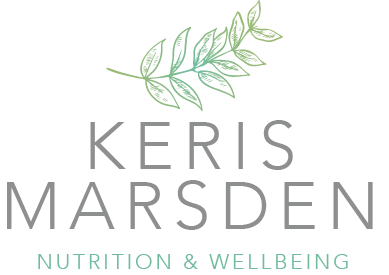Feeling tired? Here’s some helpful steps
Many clients get in touch because they’re experiencing constant tiredness that doesn’t seem to be alleviated by rest, eating emerging foods or any supplements.
Establishing the cause of fatigue can be tricky as there may be multiple factors and you may benefit from a consultation and full assessment of your diet and health history. You can book an exploratory call here.
The following are some simple steps you can consider to address your fatigue:
1. Do a quick meal audit
Especially the quality and quantity of your carbs. If you’re relying on convenient sources like cereal, crackers, oat/rice cakes and bread, even the ‘healthy versions’ ae processed and only provide a short supply of energy. Swapping to wholefoods carbs like potatoes, root veg, brown rice, quinoa, lentils, chickpeas and low sugar fruit could be better options that help regulate your blood sugar levels. Reducing the portion size and frequency of carb servings can help your body switch to using fat instead which may promote more sustained energy levels.
2. Get your iron checked
Have a complete blood count and ferritin test with your GP. Ferritin should be optimal, not just borderline (for a woman this is between 45-110 and a man 55-200 micrograms/L ). Ideally your haemoglobin is > 120 g/L (women) and >130 g/L (men).
3. Get your blood sugar levels assessed
It’s also helpful to have your fasted glucose, triglycerides and Haemoglobin A1c tested to assess blood sugar control with the hormone insulin.
4. Take a nap
An obvious point but I’m often surprised when people are neglecting sleep health and complaining of fatigue. Scrimping on the quantity and quality of sleep will catch up with you eventually.
FYI reading for 10 minutes at the end of an excessively busy day is not likely adequate sleep hygiene. You may need to have more relaxation breaks across your day and some time to decompress after work.
Trial having naps when possible, evening walks to switch off, sleep mediations or yoga Nidra to help bring you down a few gears and enhance the quality of your slumber time.
5. Get your thyroid hormones checked.
Ideally this would include TSH, T4, T3 and thyroid antibodies. A private test will offer these, Medichecks and Thriva are two options here in the UK.
A GP may test (although T3 is rarely tested) if you have symptoms suggestive of sub optimal thyroid function including constipation, low mood, brain fog, hair loss and dry skin.
6. Take a week off exercise
If you exercise frequently consider when your last recovery week was.
Athletes periodise their training and programme the intensity, duration and frequency over set periods of time, building towards peak performance for an event. After this they taper down and have recovery weeks.
Yet many people I know train like warriors week after week, only resting when illness or injury strikes.
You might be due a recovery week where you walk, stretch, do some mobility, have saunas and stick to foam rolling. Ideally restore your body on a regular basis before rest is enforced upon you.
7. Get your vitamin D tested
If you’ve not had your vitamin D levels tested for a while and haven’t supplemented consistently it can be a useful test to do with your GP or privately.
If you have darker skin, work indoors for most of the day and haven’t had a decent stint in the sun you may need a higher supplement dose. Avoid supplementing over 2000 IU/50mcg without a test as vitamin D in excess is toxic to the body.
8. Get your inflammation levels tested
You could be battling a low-grade infection and some inflammation. If you have other symptoms, it might be helpful to check in with your GP and they can look at some immune markers including full blood count, C Reactive Protein (or even better your High Sensitive CRP tested privately), ESR and calprotectin (a marker of gastrointestinal inflammation). If you have a family history of autoimmunity you could discuss have the appropriate antibody tests done or an anti-nuclear antibody test (ANA) to assess for autoimmunity.
High blood sugar levels will also drive inflammation so factor in point 3 with these tests.
9. Increase your magnesium status
Magnesium is fundamental to energy regulation. We obtain it from dark green leafy vegetables, nuts and cocoa or dark chocolate.
Many people don’t obtain enough for their needs. Trial supplementing with 200-350mg of magnesium in citrate or bisglycinate form daily.
10. Get your reproductive hormones checked
Obtain a blood hormone profile that includes LSH, FH, oestradiol, progesterone, testosterone, sex hormone binding globulin (which allows you to calculate free testosterone). This only provides a snapshot but may help identify low hormone status, this is useful for both men and women but helpful to assess if perimenopause or menopause are factors in your fatigue. Low hormone status may also be a symptom of something else like inflammation, iron overload and metabolic issues so it’s helpful to combine with testing blood glucose, thyroid and iron status.
11. Consider your B vitamin intake
Don’t jump to taking B vitamins for energy, especially B12, it’s always best to optimise dietary intake first and only supplement if needed (e.g. on a plant based diet).
If you eat an omnivorous diet and plenty of greens you can easily meet your needs. Red meat, poultry, eggs, dairy, quinoa, lentils and green leafy veg (for folate) are all good options. A few servings of liver will give you a good dose.
12. Give your brain a break
Sometimes mental fatigue is behind feelings of exhaustion. Meditation, yoga and breathwork are a great opportunity to quieten your mind and rest a busy brain which is draining your energy.
Your brain is both calorie and nutrient demanding and if it’s wired constantly it’s like leaving your car engine running whilst it’s parked on the drive, it will steadily run out of fuel and deplete the battery. Which means you feel knackered!
13. Top up your mineral intake
A busy lifestyle without adequate nutrient dense foods can easily lead to mineral imbalances. As well as focusing on eating real food (link to blog) you may benefit from taking a multi mineral formula or taking electrolytes. This is especially helpful if you’re following a lower carb or keto diet.
14. Check in with your gut
Chronic gastrointestinal symptoms like bloating, loose stools, excess wind, reflux and abdominal pain are signs of gut dysfunction. Overtime this will lead to issues with energy regulation, nutrient absorption and immune system function.
Ideally work with a registered nutritionist to develop a personalised nutrition and supplement plan to rebalance your gut.
If you need any help finding the cause of your fatigue you can book a free 15 minute call with me to chat further.

